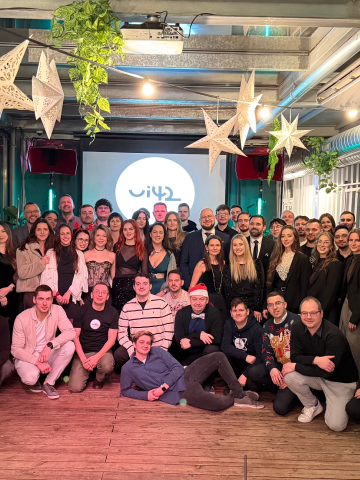CAPI
Matúš MiklovičWhat does it mean
In marketing and data research, we often encounter various acronyms that denote specific methods or technologies. One of them is CAPI. You may have heard this term before, but not everyone knows exactly what it means, what its advantages are, and what types we know. Let's break it down.
More info
CAPI is an abbreviation from the English Computer-Assisted Personal Interviewing. It is a data collection method where the interviewer or researcher conducts a personal interview with the respondent and instead of traditional paper, uses a tablet, laptop, or other digital device.
This method replaces the traditional PAPI (Paper and Pencil Interviewing) and offers a more efficient, modern, and accurate way of gathering information.
What are the advantages of CAPI?
Using CAPI brings several practical benefits:
-
Higher data accuracy – the system minimizes the risk of errors that could occur during manual transcription of responses.
-
Processing speed – responses are stored directly in the database and are available for immediate analysis.
-
Flexibility – CAPI allows for logical jumps (e.g., if the respondent answers "no," subsequent questions are skipped), simplifying the process.
-
Lower long-term costs – although initial investments may be higher, savings are made on printing questionnaires, transcription, and logistics.
-
Multimedia elements – during the interview, it is possible to show images, videos, or play audio recordings, which is not possible with a traditional paper questionnaire.
What types of CAPI do we know?
Depending on the use and technical solution, we can distinguish several forms of CAPI:
-
Face-to-face CAPI
-
The classic form where the interviewer personally visits the respondent and conducts the interview using a tablet or laptop.
-
-
Mobile CAPI (mCAPI)
-
Data is collected via smartphones or tablets. The advantage is easy portability and the possibility of use in the field.
-
-
Offline CAPI
-
Allows data collection even in environments without internet connection. Once connected to the network, responses are synchronized with the database.
-
-
Web-CAPI (combination with CAWI)
-
In some cases, CAPI is combined with a web questionnaire, where part of the interview is conducted by the interviewer and part is completed by the respondent independently online.
-
CAPI is a modern and efficient data collection method that replaces traditional paper questionnaires. Its main advantages are higher accuracy, speed, flexibility, and the ability to use multimedia. Thanks to various types (face-to-face, mobile, offline, or web), it is applicable in a wide range of research projects – from marketing surveys to academic studies.
If you are looking for a way to obtain quality and reliable data, CAPI is one of the most effective ways.
Latest news
Contact us
Don't miss out on the latest news from the world of UX, programming, analytics, and marketing.











